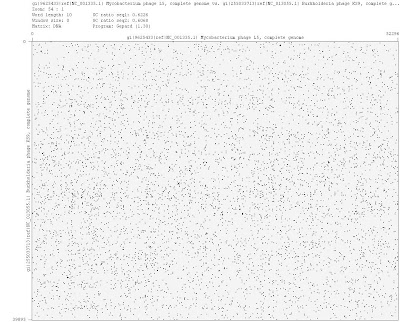From:
P. aeruginosa in Cystic Fibrosis Patients Resists Host Defenses, Antibiotics
Practical Management of Cystic Fibrosis
Burkholderia Strain List
Experimental Bacteriophage Therapy Increases Survival of Galleria mellonella Larvae Infected with Clinically Relevant
Strains of the Burkholderia cepacia Complex
Lysogeny and bacteriophage host range within the Burkholderia cepacia complex ( Three temperate phages and five lytic phages isolated from soils, river sediments or the plant rhizosphere were chosen for further study).
From:

It is like to the repressor gp71 in the model L5/D29 mycobaterium phages
Practical aspect:
if the same process for switching from lysogenic condition to lytic condition is present in two different phages (Burkholderia phage KS9 and L5 mycobacterium phage) it means that this mechanism may be used for modifying a lysogenic phage to lytic phage. We must act only by a modification of the repressor. This last point opens other points about how to modify the repressor.


Now have look and see gp41 by Artemis software ( download genome file gbk).
1) From NCBI ftp site :
Burkholderia cepacia bacteriophage genomes :
Burkholderia_ambifaria_phage_BcepF1
Burkholderia_phage_Bcep1
Burkholderia_phage_Bcep176
Burkholderia_phage_Bcep22
Burkholderia_phage_Bcep43
Burkholderia_phage_Bcep781
Burkholderia_phage_BcepB1A
Burkholderia_phage_BcepC6B
Burkholderia_phage_BcepGomr
Burkholderia_phage_BcepIL02
Burkholderia_phage_BcepMu
Burkholderia_phage_BcepNY3
Burkholderia_phage_BcepNazgul
Burkholderia_phage_KS10
Burkholderia_phage_KS9
Burkholderia_phage_phi1026b
Burkholderia_phage_phi52237
Burkholderia_phage_phiE125
Burkholderia_phage_phiE12_2
Burkholderia_phage_phiE202
Burkholderia_phage_phiE255
2)
 3)
3)
4)
 5)
5)
Relationship between two repressors ( L5 mycobaterium phage and Burkholderia phage KS9):



Canadian Cystic Fibrosis Foundation - Personalized Therapy
